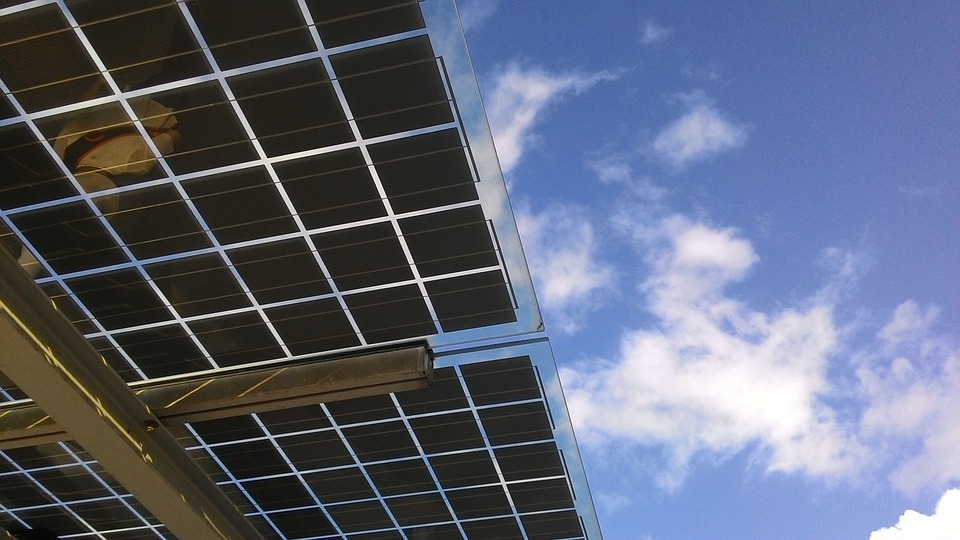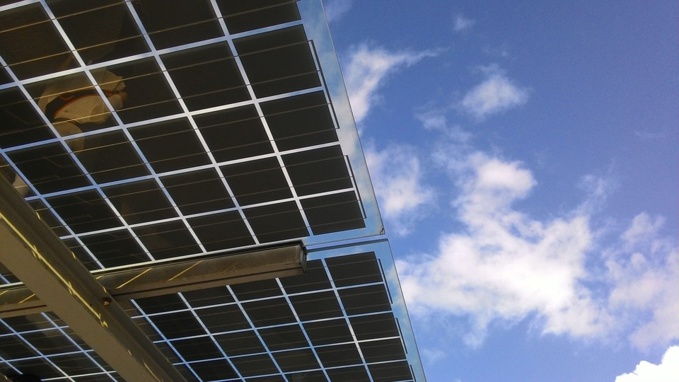"We will wait for the first tenders in Saudi Arabia," - said the company’s CEO Francesco Starace.
The company is banking on Saudi Arabia’s interest to renewable energy in connection with lower costs of building solar power plants infrastructure and generation of electricity from solar energy.
"They (the solar energy prices) will continue to fall", - added Starace.
Saudi Arabia and other oil-producing Arab countries are trying to reduce their dependence on fossil fuels and generate more electricity from solar energy.
In particular, Saudi Arabia’s consumption of fossil fuels for power generation is higher than in any other country in the world. According to a recent study, the kingdom consumes at least 900 million barrels of oil per day. In an effort to at least partially get rid of oil dependence, the country’s government recently announced their intention to switch to renewable energy. The first phase of the plan is to produce about 700 megawatts of electricity through the use of solar and wind energy in 2018. Already by 2023, this figure is expected to exceed 8.8 gigawatts. "We hope that Saudi Arabia will be the largest regional market for renewable electricity consumption", - says Sami Khoreibi, Chief Executive of Enviromena Power Systems.
Vast desert expanses, as well as noticeably more intense sunlight in the country’s equatorial regions offer good prospects for further expansion of the industry. Currently there are quite enough large projects waiting for their turn. Underway is construction of high-voltage lines to connect Saudi Arabia with neighboring and some Southern European countries. In the end, the network will cover the whole of Europe and North Africa. In addition to solar energy, another 21 GW will be obtained by a combination of nuclear, wind and geothermal energy. Agreement on nuclear cooperation with China, France, South Korea and Argentina facilitated construction of 16 new nuclear reactors. The country has even greater ambitions for the future, powered solely by renewable energy sources. Most of Saudi oil industry is now shifting from energy production to production of plastics and polymers.
All these events, plus the fact that Saudi Arabia is one of the richest countries in the region, are helping the kingdom make a transition to a state with a stable long-term perspective. The current situation has forced the government to drastically reduce oil exports. In recent years, the entire Middle East has been sinking into chaos because both demand and supply for its key export products falls. Military power, relations with the West and an extensive infrastructure for desalination allowed Saudi Arabia to presently remain relatively stable at present.
Since 2009, "solar" prices have fallen by 62%, and costs at each stage of the supply chain have shrunk significantly. This can be explained by lower cost of bank loans and increase in production to record levels. According to Bloomberg New Energy Finance, by 2025 solar energy could become cheaper than coal energy in the average worldwide.
"These are figures that change rules of the game, and they become normal in a growing number of markets, - says Adnan Amin, Director General of the International Renewable Energy Agency (IRENA). - Every time you double performance, you reduce the price by 20 percent."
source: bloomberg.com
The company is banking on Saudi Arabia’s interest to renewable energy in connection with lower costs of building solar power plants infrastructure and generation of electricity from solar energy.
"They (the solar energy prices) will continue to fall", - added Starace.
Saudi Arabia and other oil-producing Arab countries are trying to reduce their dependence on fossil fuels and generate more electricity from solar energy.
In particular, Saudi Arabia’s consumption of fossil fuels for power generation is higher than in any other country in the world. According to a recent study, the kingdom consumes at least 900 million barrels of oil per day. In an effort to at least partially get rid of oil dependence, the country’s government recently announced their intention to switch to renewable energy. The first phase of the plan is to produce about 700 megawatts of electricity through the use of solar and wind energy in 2018. Already by 2023, this figure is expected to exceed 8.8 gigawatts. "We hope that Saudi Arabia will be the largest regional market for renewable electricity consumption", - says Sami Khoreibi, Chief Executive of Enviromena Power Systems.
Vast desert expanses, as well as noticeably more intense sunlight in the country’s equatorial regions offer good prospects for further expansion of the industry. Currently there are quite enough large projects waiting for their turn. Underway is construction of high-voltage lines to connect Saudi Arabia with neighboring and some Southern European countries. In the end, the network will cover the whole of Europe and North Africa. In addition to solar energy, another 21 GW will be obtained by a combination of nuclear, wind and geothermal energy. Agreement on nuclear cooperation with China, France, South Korea and Argentina facilitated construction of 16 new nuclear reactors. The country has even greater ambitions for the future, powered solely by renewable energy sources. Most of Saudi oil industry is now shifting from energy production to production of plastics and polymers.
All these events, plus the fact that Saudi Arabia is one of the richest countries in the region, are helping the kingdom make a transition to a state with a stable long-term perspective. The current situation has forced the government to drastically reduce oil exports. In recent years, the entire Middle East has been sinking into chaos because both demand and supply for its key export products falls. Military power, relations with the West and an extensive infrastructure for desalination allowed Saudi Arabia to presently remain relatively stable at present.
Since 2009, "solar" prices have fallen by 62%, and costs at each stage of the supply chain have shrunk significantly. This can be explained by lower cost of bank loans and increase in production to record levels. According to Bloomberg New Energy Finance, by 2025 solar energy could become cheaper than coal energy in the average worldwide.
"These are figures that change rules of the game, and they become normal in a growing number of markets, - says Adnan Amin, Director General of the International Renewable Energy Agency (IRENA). - Every time you double performance, you reduce the price by 20 percent."
source: bloomberg.com



















